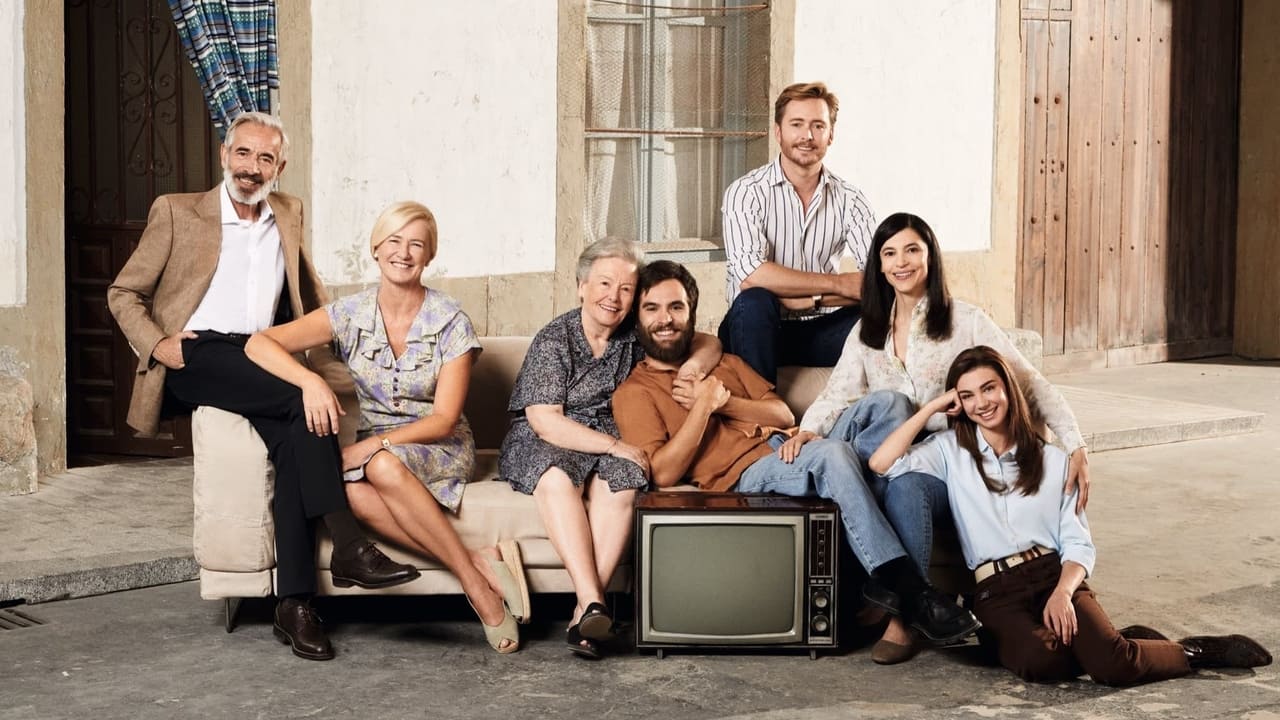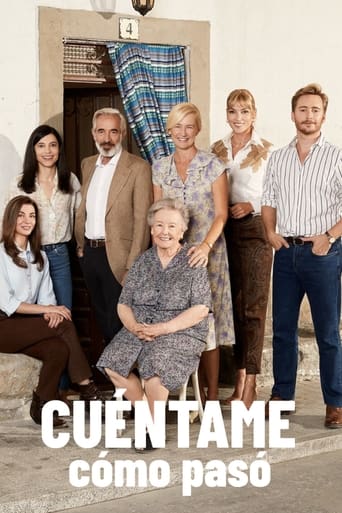Karry
Best movie of this year hands down!
Phonearl
Good start, but then it gets ruined
ChicDragon
It's a mild crowd pleaser for people who are exhausted by blockbusters.
Bergorks
If you like to be scared, if you like to laugh, and if you like to learn a thing or two at the movies, this absolutely cannot be missed.
s c
This series must be the best Spanish series of the decade. Every Thursday (it's on Thursdays) it's number 1. This means that nearly all Spain has watched this.This happens every single Thursday except when there is football.I'm a huge fan of this series because of lots of reasons. It is a perfect mix of fact & plot. Depicts the era perfectly from an insider's point of view and keeps the viewer immersed in the life of the Alcantara family. If you are not watching it, I would start by buying all the seasons. It is really worth it. It has won lots of prizes, it is the Spanish TV series by excellence. I hope you will enjoy it if you see it like I've enjoyed it the past 10 years. This is the best Spanish cinema.When I come home on Thursdays, I come home to see Cuentame!
mateluna
First "Cuéntame", then "Cuéntame cómo pasó", this series interestingly started 2 days after 9-11. It follows more or less the same format of "The Wonder years" TV series, but in Spanish.It narrates the life of a working class Spanish family from Madrid, with the background of the latter days of the Franco dictatorship in Spain, as seen by the eyes of a little boy.The family is made up of Antonio and Mercedes, who emigrated from a rural village, with the maternal grandmother, Toni and Inés, the teenage kids, and Carlos, the youngest (and the narrator).And while it does have some clichés (the hardworking father who does not want to see reality -something not too unfamiliar in these times-, the respectful mother, the revolutionary son, the proletarian priest, etc), it does try to depict the life of a particular family in which the traditional point of views of the parents/grandparents collide against the younger generation, influenced by the university, the cultural scene, and the preponderance of fascism, genocidal wars and the overthrowing of governments in the name of "democracy".
maria-dolores_vazquez-abad
The great value of "Cuéntame cómo pasó" is not the story itself, but how is it told to viewers. With simplicity, honesty, at times comical, at times tragic, without exaggerating characters or situations, this is the most enjoyable and the best TV series I have ever seen.It is a true family show, with the added value of stating deep social, moral and ethical questions, which avoids completely "cheap philosophical clichés" presenting realistic circumstances where the different choices often lead to opposite consequences. Furthermore, as in real-life, the characters make the choices influenced by individual emotional feelings frequently contrary to reason and good sense. We see all this happen and understand each character's realistic situation, never knowing what to expect.There are no good or bad individuals; they are people just like any one of us. Their interactions are not predictable and they don't always act the way they should, making mistakes leading the plot to unexpected outcomes.Although it is set in a specific time and place, and yes, historical events are carefully embroidered within the plot, the main story is about the human being, jealousy, greed, lust, pride, drive for performance and improvement; and the interactions of every-day individuals within and without the family circle, their double standards in the judgments of others compared to their own; it exposes the weaknesses and strengths of our culture, transcending beyond Spain to all Western cultures and beyond Spanish to non-Spanish speaking audiences.
EK72
There's no accounting for tastes of course ... but I would give a opposite review to the one you've just read. I don't live in Spain so I don't know what the Spanish think of this show, but to me it fills a big question mark in my mind. I grew up studying Spanish and all through highschool, college, and graduate school I heard stories of Spain under Franco, but didn't really understand what it was like. "Cuéntame", as the other review mentioned, is set in the last decade of Franco's rule. If it's accurate, this show gives the "taste" of a very particular and very important period that has a lot to do with the way Spain is now (even though there is in many ways very little resemblance).The show can be a little too earnest sometimes, and sometimes it's obvious that they are trying to touch (even though lightly) on all the major issues of the day and come out on the right side in each of them. But I think there is also an interesting balance between the outrage of the kids who are just realising what's going on in their society and the parents & grandmother who have seen it all and are cautious about getting involved in politics. And lots of arguing about things that matter, the kind of getting-things-out-in-the-open that I would expect from the Spanish families I know. Not a kind of arguing that tears families apart, but one that is a natural part of living together and getting to understand what makes the other person tick. And even if you never understand them, they're still Family. That's the other nice part of this show, apart from the "historical" value: there's lots of qualities in the Alcántara family that reminds you of the best in Spanish family life.

